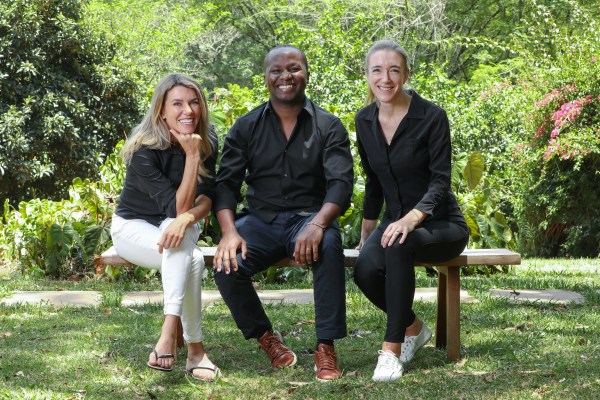Niklas Adalberth’s Norrsken Foundation is in the news again barely two months after opening its Norrsken House in Kigali, Rwanda, which plans to accommodate thousands of entrepreneurs by next year.
This time, the foundation has teamed up with thirty unicorn founders and a couple of seasoned venture capital and private equity investors to launch a $200 million fund targeted at African startups.
The fund, dubbed the Norrsken22 African Tech Growth Fund, has reached its first close of $110 million, per a statement seen by TechCrunch. It’s the latest fund launched by Norrsken after closing €125 million impact fund for European startups last March.
Hans Otterling, a partner at Northzone, a U.K.-based early VC firm that led the investment in Adalberth’s previous company Klarna, is Norrsken’s founding partner alongside the Klarna co-founder.
Making up the firm’s investment are the general partners Natalie Kolbe, the ex-global head of private equity at Actis, a private equity fund investing in emerging markets; her colleague, Ngetha Waithaka; and Lexi Novitske, the ex-managing partner at Acuity Ventures Platform. Novitske told TechCrunch on a call that the firm is speaking to a few DFIs to reach a final close later this year.
Before Acuity, Novitske was principal at Singularity Investments. Portfolio companies across both firms include API fintechs such as Mono and OnePipe; and exited companies like Flutterwave, Paystack and mPharma.
Africa VC funding reached an all-time high in 2021 at over $4 billion, more than what startups in the continent raised in the two previous years combined. Growth and late-stage deals such as $100 million-plus rounds from unicorns Andela, Flutterwave, Chipper Cash, OPay and Wave and other companies largely propelled this growth. Nevertheless, they were relatively fewer than early-stage deals, per insights from Briter Bridges and The Big Deal.
There’s another issue besides the shortage of growth and late-stage checks. Most of these large deals are often financed by international VCs as local investors tend to focus on pre-seed to Series A rounds with micro to medium-sized funds.
“What’s happening is, and we’ve seen this in our Acuity portfolio, is that our founders, as they grow and want to scale, have to take time away from their business and spend it with Silicon Valley-based investors who they have to educate on the Africa growth story,” said Novitske on a call with TechCrunch.
“These investors are coming with their capital, which is valuable, of course, but they’re not coming with the local knowledge to help those companies scale across the continent. And that’s the missing middle that we’re looking to unlock with this fund.”
According to her, Norrsken22 intends to be that growth-stage local-based firm that will enable startups to unlock significant partnerships to grow revenue, find the best talent and facilitate expansion plans across Nigeria, Kenya and South Africa.
The firm, with offices in the countries above, is the latest big-sized Africa-focused VC fund that includes the likes of TLcom Capital which recently closed nearly half of its new $150 million fund; Novastar Ventures, a $200 million fund; and Partech Ventures, a $143 million fund.
While the others seldomly invest above Series B rounds, Norrsken22 is willing to go beyond that stage. Waithaka, speaking on the fund’s strategy, said Norrsken22 plans to invest 40% of its capital, about $80 million in Series A and B companies and the rest in follow-on rounds from Series C up until exit.
The firm will make 20 investments at an average ticket size of $10 million and may go as high as $16 million, including follow-on rounds in some portfolio companies, he continued.
“I think that reserve capital pool is really important because we do want to have the ability to support companies through their entire lifecycle,” said Kolbe picking up from where Waithaka left off in the conversation. “Innovation is uncertain, and it doesn’t happen overnight, so we want to be sure to be able to support the top winners in the company so they can be the champions in the tech ecosystem.”
Per sectors, Norrsken22 will rely on its general partners’ years of experience and investment philosophies to back startups in fintech, medtech, edtech and market-enabling solutions such as B2B marketplaces and inventory management businesses.
Kolbe, whose previous firm Actis backed Egyptian fintech giant Fawry in 2019 as it prepared to go public, said Norrsken would look at Egypt ‘opportunistically.’ Deals from the country that may be of interest to the firm will be those planning an expansion into the four markets Norrsken22 is keen on right now: Nigeria, Ghana, Kenya and South Africa.
Of the $110 million first close reached by Norrsken22, $65 million comes from a group of unicorn founders globally. Some of them include Flutterwave co-founder Olugbenga ‘GB’ Agboola; Skype co-founder Niklas Zennström; iZettle co-founder, Jacob de Geer; Delivery Hero co-founder Niklas Östberg. Others include Carl Manneh, co-founder Mojang; Sebastian Knutsson, co-founder King; and Willard Ahdritz, founder of Kobalt Music.
Asides from the capital, they will help portfolio founders understand what it takes to bring their companies from series A to billion-dollar companies, said the founding partners. The Norrsken22 African Tech Growth Fund is also supported by a local advisory council board, which according to the partners, will help portfolio startups navigate business challenges across the continent.
Nonkululeko Nyembezi, the chairman of the Johannesburg Stock Exchange (JSE), is a member of this board. Arnold Ekpe, the ex-group chief executive at pan-African bank Ecobank; Phuthuma Nhleko, an ex-chief executive at telecoms giant MTN; and Shingai Mutasa, founder and chief executive at Harare-based investment firm Masawara are the others.
As an anchor shareholder, the Norrsken Foundation intends to re-invest all of its carry into projects across the continent, including the Kigali House.
